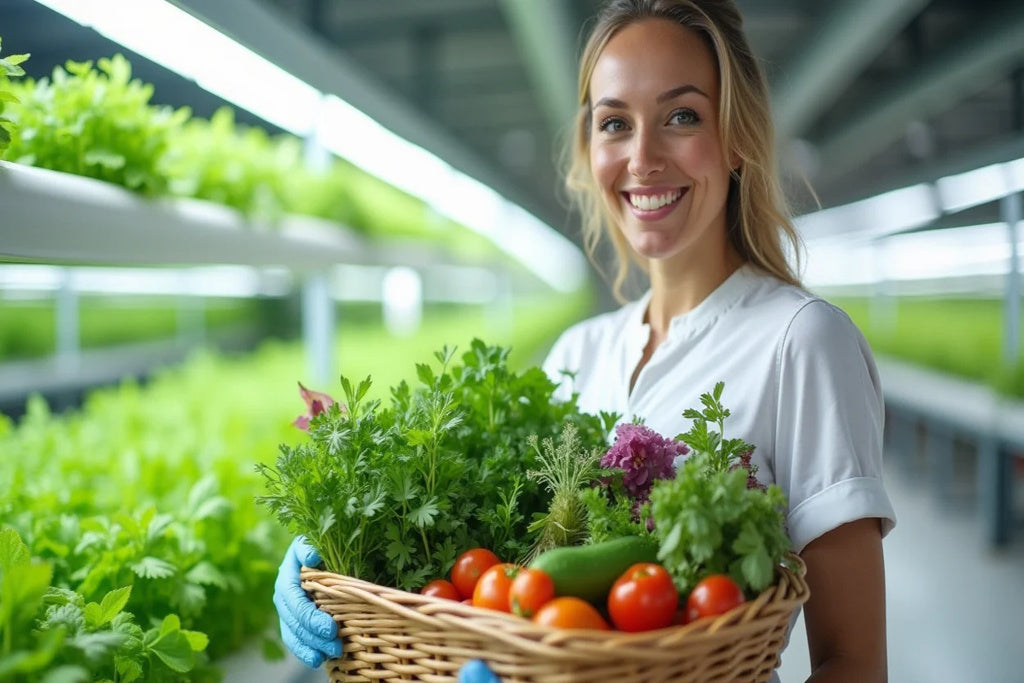Imagine biting into a crisp, flavorful salad where every leaf, herb, and vegetable tastes like it was just picked—because it was. The difference between produce that has been sitting in transit for days and food that has been freshly harvested is undeniable. The texture is crisper, the flavors are richer, and the nutrients are at their peak. But with modern farming innovations, this level of freshness is no longer reserved for those who grow their own food—it’s becoming more accessible to urban dwellers everywhere.
The Power of Fresh, Locally Grown Food
In a world where much of our food travels thousands of miles before reaching our plates, locally grown produce is changing the game. Unlike traditional supply chains, where vegetables are often harvested before ripening and stored for extended periods, local farms are offering a new way to experience food: one where the journey from farm to table is measured in hours rather than days.
This shift towards fresher, locally grown food brings numerous benefits:
- Better Taste & Nutrition – Fresh produce retains its natural sugars, making it taste sweeter and more flavorful. Nutrients, particularly vitamins and antioxidants, are preserved when vegetables are consumed soon after harvest.
- Fewer Chemicals & Preservatives – Since locally grown vegetables don’t need long-haul transportation, they require fewer preservatives to maintain their shelf life. This means purer, cleaner food with fewer artificial interventions.
- Reduced Environmental Impact – Shorter supply chains result in lower carbon footprints. Less transportation means fewer emissions, making local farming a more sustainable choice.
How Modern Farming is Bringing Freshness Closer
Fresh, high-quality produce is no longer exclusive to rural farmlands. Innovative farming techniques, such as hydroponics and vertical farming, are bringing the farm to UAE. These advanced growing methods allow vegetables, microgreens, and herbs to thrive in urban environments where space and natural resources are limited.

- Hydroponic farming eliminates the need for soil, allowing plants to grow in nutrient-rich water while using up to 90% less water than traditional farming.
- Vertical farming maximizes space by growing crops in stacked layers, making it possible to cultivate fresh produce in the heart of cities.
- Controlled environments protect plants from unpredictable weather conditions, ensuring year-round availability of fresh, chemical-free food.
These sustainable methods not only support food security in urban areas but also provide an opportunity for people to access farm-fresh food without the long wait.
Bringing the Farm to Your Table
Eating vegetables harvested just hours ago is no longer a luxury—it’s becoming a reality for more people every day. Local farms and urban agriculture initiatives are making it easier than ever to source pesticide-free, nutrient-rich greens, microgreens, herbs, and edible flowers straight from nearby farms rather than relying on produce that has traveled long distances.

With access to fresher food, restaurants are serving up dishes bursting with authentic flavors, home cooks are experimenting with ingredients at their peak, and families are rediscovering the joy of eating meals made from produce that hasn't lost its vitality.
A Future Where Fresh Food is the Norm
As more people recognize the value of eating food harvested at its peak, the demand for local, sustainable agriculture continues to grow. Whether it’s through community-supported agriculture (CSA), farmer’s markets, or innovative urban farms, the way we access food is evolving.
The next time you prepare a meal, ask yourself: How fresh are my ingredients? Choosing freshly harvested vegetables isn’t just about flavor—it’s about reconnecting with real food, supporting sustainability, and making a choice that benefits both personal health and the planet.
For those in the UAE, farms like UNS Farms are leading the way in making ultra-fresh, locally grown produce more accessible than ever. By embracing sustainable farming techniques, they are helping reshape how food is grown, distributed, and enjoyed—ensuring that every bite is packed with nutrition, flavor, and freshness.
Wouldn’t it be amazing if every meal started with vegetables that were picked just hours ago?






